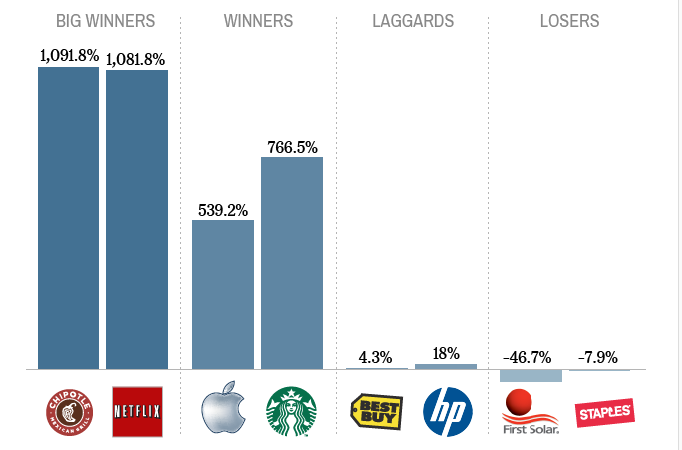The Standard & Poor’s 500 Index fell, erasing its gain for the year, while Treasuries and the yen advanced as tension persisted in Ukraine. Copper declined as data from China missed estimates and gold reversed losses.
The S&P 500 sank 1.2 percent to 1,846.34 after earlier rising to within four points of a record. The Dow Jones Industrial Average fell 231 points. Yields on 10-year Treasuries slid nine basis points to 2.64 percent by 5:11 p.m. in New York. Russian stocks dropped to the lowest level since May 2010. Copper dropped to near a 44-month low and gold rose 0.1 percent. The yen rallied 0.9 percent to 101.78 per dollar.
Equity Valuations
The S&P 500 closed yesterday 0.5 percent away from a record reached March 7. The gauge has fallen 1.7 percent this week and is trading at the lowest level since March 3. It is down 0.1 percent in 2014 after rallying 30 percent last year.
U.S. stocks are falling at the five-year anniversary of a bull market that sent the S&P 500 up 176 percent through yesterday, pushing its price-to-earnings ratio to 17, approaching the level where equities peaked in 2008.
Emerging Markets
Goldman Sachs Group Inc. cut its forecast for Russia’s economic growth this year to 1 percent from 3 percent earlier, citing the Ukraine crisis, lower investment and capital outflows.
The iShares MSCI Emerging Markets Index exchange-traded fund lost 1.8 percent to the lowest level since Feb. 5.
Brazil’s Ibovespa index fell 0.9 percent, extending a decline from its Oct. 22 peak to 19.5 percent on concern that Brazil’s credit rating will be reduced. Central bank President Alexandre Tombini and directors meet today with S&P analysts.
The S&P GSCI index of 24 commodities lost 0.3 percent, with natural gas declining 2.4 percent to pace losses. Wheat futures fell from a four-month high on signs that demand ebbed for exports from the U.S., the world’s biggest shipper.
The Standard & Poor’s 500 Index fell, erasing its gain for the year, while Treasuries and the yen advanced as tension persisted in Ukraine. Copper declined as data from China missed estimates and gold reversed losses.
The S&P 500 sank 1.2 percent to 1,846.34 after earlier rising to within four points of a record. The Dow Jones Industrial Average fell 231 points. Yields on 10-year Treasuries slid nine basis points to 2.64 percent by 5:11 p.m. in New York. Russian stocks dropped to the lowest level since May 2010. Copper dropped to near a 44-month low and gold rose 0.1 percent. The yen rallied 0.9 percent to 101.78 per dollar.
Equity Valuations
The S&P 500 closed yesterday 0.5 percent away from a record reached March 7. The gauge has fallen 1.7 percent this week and is trading at the lowest level since March 3. It is down 0.1 percent in 2014 after rallying 30 percent last year.
U.S. stocks are falling at the five-year anniversary of a bull market that sent the S&P 500 up 176 percent through yesterday, pushing its price-to-earnings ratio to 17, approaching the level where equities peaked in 2008.
Emerging Markets
Goldman Sachs Group Inc. cut its forecast for Russia’s economic growth this year to 1 percent from 3 percent earlier, citing the Ukraine crisis, lower investment and capital outflows.
The iShares MSCI Emerging Markets Index exchange-traded fund lost 1.8 percent to the lowest level since Feb. 5.
Brazil’s Ibovespa index fell 0.9 percent, extending a decline from its Oct. 22 peak to 19.5 percent on concern that Brazil’s credit rating will be reduced. Central bank President Alexandre Tombini and directors meet today with S&P analysts.
The S&P GSCI index of 24 commodities lost 0.3 percent, with natural gas declining 2.4 percent to pace losses. Wheat futures fell from a four-month high on signs that demand ebbed for exports from the U.S., the world’s biggest shipper.
U.S. Movers
In the U.S., nine of the 10 main S&P 500 groups retreated today. Technology and industrial stocks led declines, falling at least 1.5 percent. United Technologies Corp. slid 2.5 percent and Pfizer Inc. lost 2.7 percent for the steepest declines in the Dow.
“The negative data points coming from China have taken people’s bullishness down a few levels,” Michael James, a Los Angeles-based managing director of equity trading at Wedbush Securities Inc., said in a phone interview. “You’re seeing traders who were probably overextended on the long side toward the end of last week continue to reduce positions.”
Just Register here to get more detailed Information or just Click Here








































